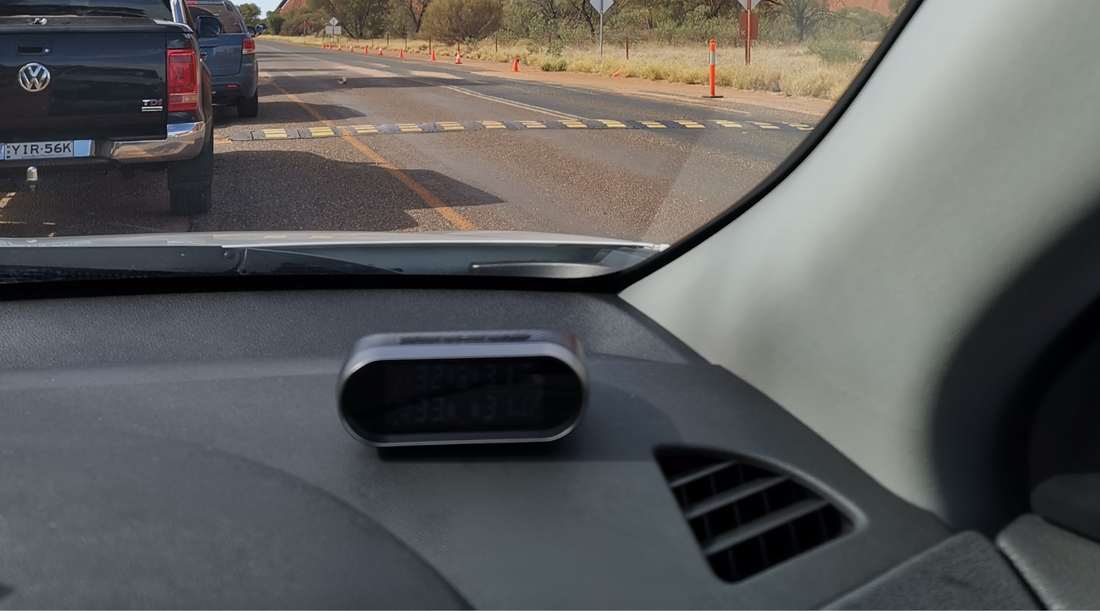
Should I Install a TPMS?
In the tapestry of cars, tyres are often one of the most overlooked threads when it comes to safety and maintenance. A Tyre Pressure Monitoring System (TPMS) takes the guesswork out of maintaining the correct tyre pressure and temperature. Whether you're managing a fleet of trucks or driving your family car, TPMS offer multiple advantages - many of which you may not expect. In this article, we’ll explore all the benefits of TPMS and why installing one can make a real difference to your vehicle’s performance, your wallet and your peace of mind.
Safety First
Driving on improperly inflated tyres is a hidden hazard that can have serious consequences. Underinflated tyres flex more than they should, causing excessive heat build-up - one of the leading causes of tyre blowouts. Overinflated tyres, on the other hand, can reduce traction and increase the risk of skidding or losing control, especially in wet conditions.
A TPMS acts as an early warning system, instantly alerting you when tyre pressure falls outside safe limits. This gives you the chance to act before something goes wrong. Whether it’s a slow leak or a sudden pressure drop, real-time monitoring helps you avoid dangerous surprises on the road.
For vehicles carrying heavy loads or traveling at high speeds - like trucks, caravans, and trailers - correct tyre pressure becomes even more critical. The added weight increases tyre stress and reduces margin for error. By keeping tyres at optimal pressure, TPMS reduces stopping distances, improves handling and dramatically lowers the risk of accidents caused by tyre failure.
Ultimately, a TPMS doesn’t just protect you — it makes the road safer for everyone around you.

Convenience and Peace of Mind
Checking tyre pressure manually at gas stations can be time-consuming and easy to forget. With a TPMS installed, there’s no need to pull out a pressure gauge or visit the service station. The system monitors your tyres in real time and alerts you the moment something is wrong.
The result? Peace of mind. Whether you're driving across town or across the country, you can trust your tyres are in check. This is especially valuable for long-distance drivers, tradespeople or anyone towing a trailer or caravan. A slow leak or low-pressure tyre could otherwise go unnoticed for hours - putting both safety and work at risk.
Extend Tyre Lifespan
Tyres wear out much faster when not properly maintained. Driving with underinflated or overinflated tyres causes uneven wear - reducing their lifespan significantly. Underinflated tyres wear more on the edges, while overinflated tyres wear out the centre tread. Either way, you’ll be replacing them sooner than necessary.
A TPMS helps you keep your tyres at the correct pressure all the time, ensuring even wear across the tyres surface and extending their usable life. That means fewer replacements, less downtime and more money in your pocket.
For businesses running fleets or for drivers clocking up high mileage, the savings from increased tyre longevity can be substantial. With tyre costs rising, investing in a TPMS isn't just a safe choice - it's a smart financial one too.

Save Fuel
There’s even more to save than just your tyre lifespan! When your wheels are underinflated, they create more rolling resistance - meaning your engine has to work harder to move the vehicle. This translates into higher fuel consumption. In fact, research shows that tyres just a few PSI below the recommended level can reduce fuel efficiency by up to 5%.
With fuel prices constantly fluctuating, every litre counts. A TPMS ensures your tyres are always inflated to the optimal pressure, helping you get the best possible mileage from every tank. Whether you’re driving a compact car, a ute, or a heavy-duty truck, properly inflated tyres mean smoother driving and less money spent on fuel.
Over time, the fuel savings alone can more than pay for the cost of a TPMS. It's a simple yet effective way to drive smarter, greener and more affordably.
Better Performance
Correct tyre pressure plays a crucial role in how your vehicle responds to the road. Underinflated or overinflated tyres can reduce grip, delay braking response and make steering feel sluggish or uneven. A TPMS helps maintain the perfect balance by ensuring every tyre is inflated to their optimal level thereby allowing maximum contact with the road surface. This results in sharper handling, shorter breaking distances and improved stability going around corners.
For vehicles carrying heavy loads - like utes, vans, trailers and trucks - the stakes are even higher. Incorrect pressure can cause tyres to overheat, flex too much under load or wear unevenly - increasing the risk of tyre failure. TPMS ensures your tyres can safely handle the weight, delivering better stability and control even under demanding conditions.

Conclusion
From improving safety and vehicle performance to saving time and money - a Tyre Pressure Monitoring System (TPMS) offers benefits whether you're a daily commuter, a fleet manager or someone who tows a caravan or trailer on long trips. It's not just about avoiding problems - it's about driving smarter and safer every day.



